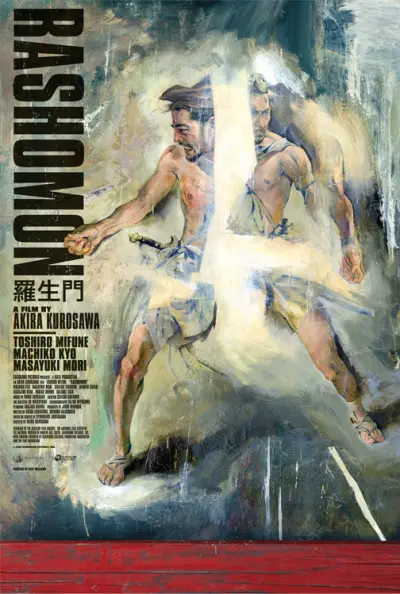
Akira Kurosawa's "Rashomon" is a cinematic masterpiece that delves into the complexities of human nature and the elusive concept of truth. Adapted from Ryunosuke Akutagawa's short stories "In a Grove" and "Rashōmon", this film is set within a forest and centers around a samurai's murder and his bride's rape. The narrative unfolds through the diverging perspectives of four characters: a bandit, the bride, the samurai (through a medium), and a woodcutter.
The plot construction of "Rashomon" is remarkable, offering a multi-faceted view of the same events. Each character presents a distinct version of the story, with notable differences in details and motivations. For example, the bandit claims a valiant duel led to the samurai's demise, while the bride recounts a tale of rejection and grief, culminating in her killing her husband. The samurai, voiced through a medium, provides a contrasting account. This narrative approach not only crafts a suspenseful and engaging story but also encourages the audience to scrutinize the reliability and subjectivity of each testimony.
At the heart of the film lies the theme of the subjectivity of truth and the relativity of reality. "Rashomon" adeptly demonstrates how individual biases, emotions, and egos influence our perception and recounting of events. Kurosawa explores the human incapacity for complete honesty, even with oneself. This is portrayed through each character's embellished narratives, likely shaped to present themselves more favorably or to deal with their own guilt.
Another prominent theme is the exploration of human morality and justice. The film engages viewers in contemplating the essence of justice and the moral quandaries presented by conflicting narratives. It raises critical questions about achieving genuine justice in a world where facts can be subjectively interpreted.
Beyond its narrative intricacies, the film's scenario reflects on the nature of human beings. It suggests that our grasp of truth is often obscured by personal experiences, desires, and fears. The disparate accounts in "Rashomon" represent not merely different viewpoints but also the fragmented and often contradictory nature of human existence.
In summary, "Rashomon" transcends the boundaries of a mere crime story; it is a profound philosophical exploration of human consciousness. Its pioneering storytelling, combined with a deep dive into themes such as the elusiveness of truth and the intricacies of human morality, cements its status as a timeless masterpiece. The film's influence extends well beyond its historical and cultural origins, continuing to resonate with and challenge global audiences. Its legacy is evident in its enduring impact on cinema and the ongoing discussion about the nature of truth and justice.

